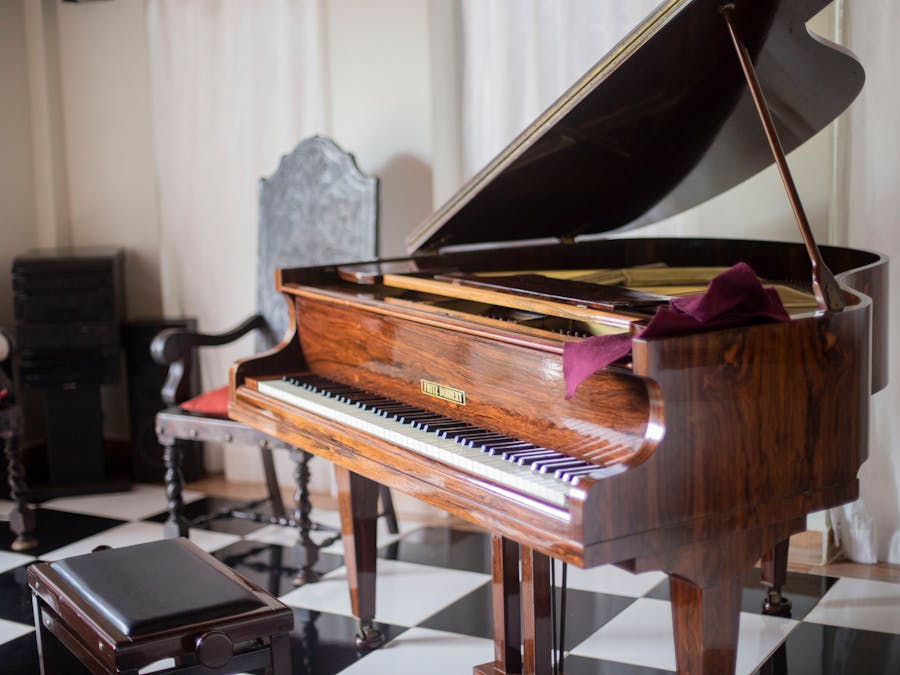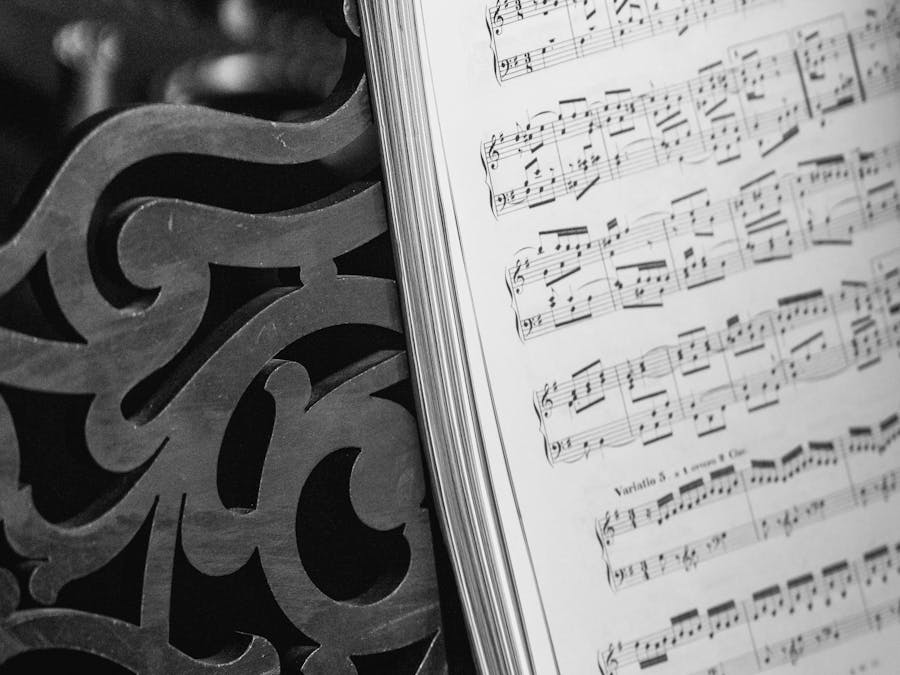 Piano Guidance
Piano Guidance
 Piano Guidance
Piano Guidance

 Photo: Sebastian Ervi
Photo: Sebastian Ervi
Scientists found that the music directly affects human RNA, suggesting that listening to music has even more surprising benefits than previously thought. It affects the very core of your biological being.

Replacing missing ivory key tops costs about $10 per ivory wafer, if done in conjunction with a normal tuning appointment. (Replacements are...
Read More »
But the big difference for pianists is that their communication is about syntax, not words. Dr. Charles Limb's study showed that when pianists...
Read More »Scientists have known for a while now that listening to music has a bounty of physical and mental benefits: It reduces blood pressure, causes the release of dopamine and even improves muscle function. Though music clearly affects our brains, scientists didn't know what caused those mental changes on a molecular level — until now. Scientists at the University of Helsinki have made the amazing discovery, published in PeerJ, that listening to classical music actually alters the function of your genes. Scientists took blood samples from study participants before and after listening to Mozart's Violin Concerto No. 3 in G major, K.216. Scientists found that the music directly affects human RNA, suggesting that listening to music has even more surprising benefits than previously thought. It affects the very core of your biological being. More detailed than ever: This is an unprecedented amount of insight into how exactly music influences human beings. Scientists have previously used PET scans to watch the brain as it processes music. But with the introduction of genomics, scientists can look even closer by sampling blood and identifying its molecular properties. 48 people participated in this study, and they were split into two groups: those who had musical experience and those who were inexperienced. What the researchers found in the experienced group was striking. Good for you in every way: For the musically inclined group, the study uncovered huge genetic benefits after listening to classical music. Listening to music increased expression of the glucocorticoid receptor, which regulates stress, depression and even addictive behaviors. Not only that, listening to music also inhibits dopamine reuptake, meaning that the brain has more of the molecule that regulates the brain's reward center. "Listening to classical music enhanced the activity of genes that are mainly related to reward and pleasure, cognitive functions and proper brain function," Chakravarthi Kanduri, Computational Biology Researcher at the University of Helsinki, wrote Mic. "Some of the findings of this study may explain the molecular mechanisms underlying music therapy." Music does all this by getting the good genes moving — specifically, those that help with mood, memory, learning and basic brain function. But music also slows down bad genes that cause brain degeneration, meaning that listening to music actually acts like a brain shield. A set of the genes affected are the same genes that help songbirds learn new songs. This suggests that there may actually be a shared, deep evolutionary background between our love of music and birds' use of music — a link some classical musicians may already have intuited. All the more reason to learn music: The study found the strongest responses among those familiar with music — participants without musical backgrounds didn't experience any noticeable benefits. These findings only cemented the fact that childhood music lessons are extremely beneficial to cognitive function: "We observed no significant findings in musically inexperienced participants," either naturally or through lack of learning, the study authors wrote. But Kanduri still thinks it might influence everyone positively. "We cannot exclude the possibility of a similar effect in musically inexperienced participants," Kanduri wrote. "Several factors such as age, gender, personal preferences of music genres, familiarity of music compositions and duration of listening may affect the transcriptional responses." Whether or not classical music affects the less musically inclined equally, the list of reasons to learn music just got a lot more compelling. It's never been clearer that music really can change us.

The P45 uses the Advanced Wave Memory sampling, which is perfectly adequate, but slightly less impressive. While the pianos both feel the same, the...
Read More »
The minor pentatonic scale is an amazing scale that can create stunningly beautiful riffs, runs, and melodies. It is a fantastic way to start...
Read More »Are old pianos better than new ones? The answer is: it depends. Old pianos can continue to sound wonderful for many years with regular maintenance and care, but even pianos that have deteriorated can often be restored to their former glory, and in many cases made to sound even better than when they were new.
Are old pianos better than new ones? The answer is: it depends. Old pianos can continue to sound wonderful for many years with regular maintenance and care, but even pianos that have deteriorated can often be restored to their former glory, and in many cases made to sound even better than when they were new. New pianos need a great deal of preparation right out of the box to ensure that they sound as good as their potential. In both instances, the quality of an old or new piano will largely be determined by the skill of the technicians and craftsmen working on the instrument. It’s also important to note that every acoustic piano, old or new, has its own unique voice. That’s why it’s so important to try out pianos in person whenever possible. Watch the video below for a full explanation by Rich Galassini, co-owner of Cunningham Piano Company, and pianist Hugh Sung.

Under U.S. copyright law, you do not have to obtain sample clearance if your sample is so altered that it does not infringe on the original, or...
Read More »
It takes about one month to reach the beginner level, to learn piano basics and get accustomed to it, multitasking, and learn basic music theory,...
Read More »
The brightest note of the brightest mode, Lydian, is the 11. Interestingly, that note is also the darkest note (the 5) of darkest mode, Locrian....
Read More »
If you can already play songs hands together it'll take you about 4 months to get good at playing piano by ear. If you're a complete beginner and...
Read More »